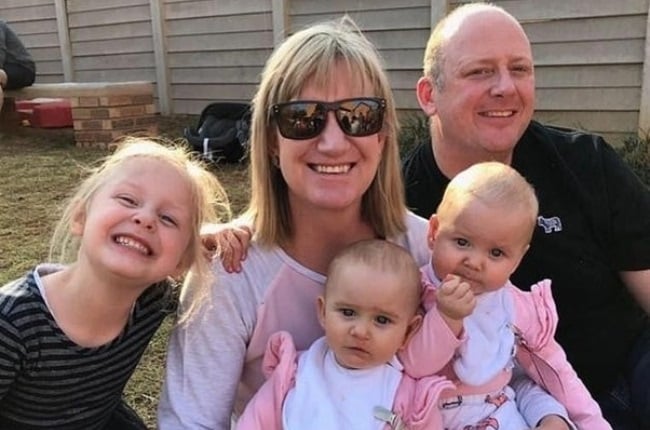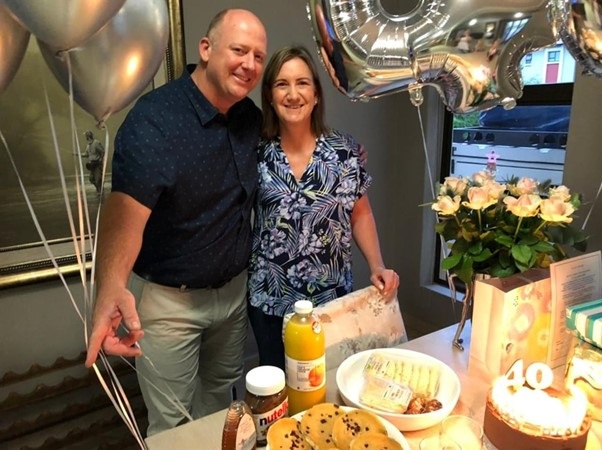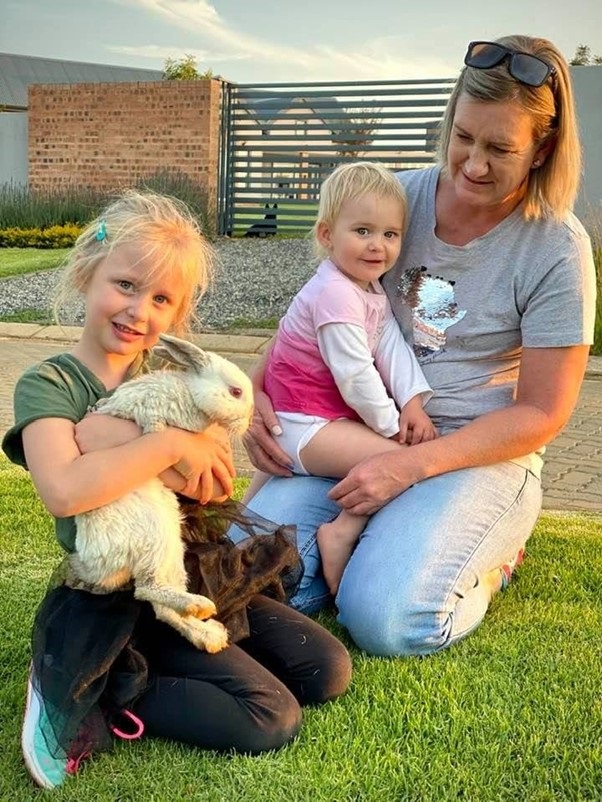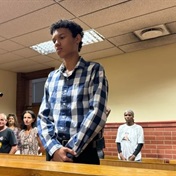
Lauren Dickason wasn’t a physically affectionate mom. She wasn't one to pick up her daughters and shower them with kisses, but that didn't mean she was capable of murdering them in cold blood.
This is what Lauren's husband, Dr Graham Dickason, told police shortly after Lauren had killed their three young daughters, Liané (6) and twins Maya and Karla (2), on 16 September 2021 while he was having dinner with colleagues.
The mother-of-three is alleged to have tied cable ties around her children's necks to choke them after telling them they "were going to make necklaces".
When that didn't work, she smothered them with blankets, prosecutors told the court.
Lauren, who is on trial in Christchurch, New Zealand, for the murders of her children, pleaded not guilty.
The court heard a recording of a police interview with Graham shortly after he'd returned home to find his wife disoriented. She's believed to have attempted suicide after killing their children.
Lauren, Graham said, is "a tortured soul".
The couple, originally from Pretoria, moved to New Zealand in 2021, just a few weeks before their children were killed.
Lauren, the court also heard, had gently tucked her daughters into their beds, surrounding them with plush toys after she'd killed them.
The suppression order
New Zealand authorities withheld these revelations from the public for nearly two years because the court issued a suppression order, preventing information about the case from being made public.
This is done to prevent potential jury members forming a biased opinion about the case before the trial.
“Suppression orders have been put on cases to prevent copycat incidents, and our rules on reporting suicides makes it very difficult to describe any details which may aid another person in following the example,” Dr James Mehigan, a legal expert from New Zealand, tells YOU.
But when Lauren’s trial started on Monday, prosecutor Andrew McRae described the grisly details of the children's deaths in his opening statement.
The three girls were murdered in the family home in Timaru.
“The prosecution opening will always include the details of the crime that are necessary for the jury to be able to find that the defendant killed the victims," Mehigan says. "This will usually include the means of killing them, even when it is as distressing as this."
READ MORE | Lauren Dickason finds solace in hospital garden talking to her dead girls as trial looms
If Lauren had denied that she'd killed the girls, the state would’ve included even more details in its opening statement, he says.
But that part isn't in question. “The actual facts are agreed in the case. The whole case hinges on her mental state."
Lauren is pleading insanity because, according to her lawyer, Kerryn Beaton, she wasn’t in her right mind when she killed the children.
Beaton told the court Lauren loved her daughters very much.
“This is brutal, it’s confronting. It’s difficult to hear and to imagine. You’ll be rightly shocked and horrified today,” Beaton said in her opening statement.
“That’s understandable because what Lauren Dickason did is horrifying. But the truth is that Lauren Dickason is a woman who longed to be a mother, who went through 17 rounds of IVF to have her three daughters. She wanted those children very much and she loved her family.”
Lauren had severe mental health issues, Beaton said. But McRae argued Lauren had planned the murders.
The New Zealand judicial system
The New Zealand legal system is very similar to South Africa, says Professor Robin Palmer, director of clinical legal studies at Canterbury University in Christchurch.
This is because both are based on the British legal system.
“New Zealand litigation is accusatory, and The Crown (the state) must prove beyond reasonable doubt that the accused is guilty. The biggest difference between our two countries is that New Zealand has 12 jury members who must make decisions based on the facts presented in court.” In South Africa we have a judge and no jury system.
In New Zealand the judge will address the jury before they decide on their verdict, providing advice on how to consider and analyse the evidence heard in court.
If the jury delivers a guilty verdict, sentencing procedures will follow and Lauren will have the opportunity to appeal the conviction and sentence, as she would've if she was tried and convicted in South Africa.
The long delay between Lauren's arrest and the start of her trial is not unusual, says Liz Kennedy, spokesperson for the New Zealand justice department.
It’s not uncommon for trials to start 12 months after a suspect's first court appearance. This gives all parties involved an opportunity to thoroughly prepare.
The pandemic, she adds, also caused a backlog of trials, as many cases were postponed due to Covid restrictions and lockdowns.
Extra source: rnz.co.nz




 Publications
Publications
 Partners
Partners



















